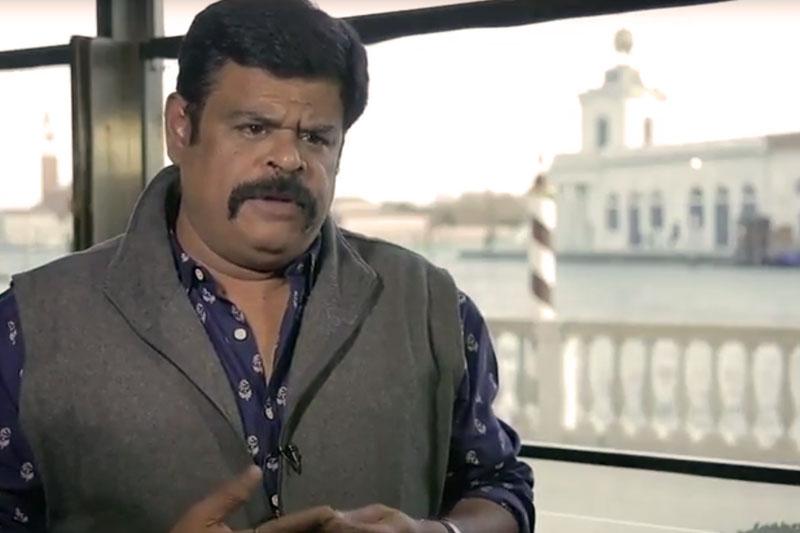India has some of the world’s most talented screenwriters and directors, but is lagging behind in setting up the collections infrastructure they need. In this interview, Vinod Ranganath explains how support from Writers & Directors Worldwide can help fix the problem.
article
1. What is the situation for screenwriters and directors in India? Does the law acknowledge their rights and guarantee fair remuneration?
As far as wages in India are concerned, screenwriters in films especially, used to be paid abysmally until the mid-1990. With the advent of corporate producers, a bit of professionalism came into our industry. They insisted on contracts and proper payment schedules. Earlier payments and remunerations were ad hoc but there was to some extent, transparency in the budgets of films.
TV writers from the mid 1990’s when the satellite boom took place, were always paid decently. Though the payment schedules were not good, a screenwriter still received fair wages. However, in both the TV and film industry, there was no concept of royalties and licensing of rights. Though the Copyright Act did specify various rights, most writers were not aware of them. Producers and broadcasters would aim to have authors assign away all their rights in exchange for the fee they were paid.
Things changed in 2012 when the Copyright Act was amended to make the right to a royalty inalienable. Now, as per law, a producer or broadcaster cannot take away the right to royalty from an author. Any writer can only assign his royalties under two circumstances: they can assign it to the government recognised Collective Management Organisation (CMO), or they can assign it to their legal heir.
The writer’s guild in Mumbai has conducted various workshops and seminars to educate authors on their rights. They have also established a legal department to help authors directly. Producers and broadcasters however, are still trying to find ways to circumvent the amendment, for example by making
work for hire contracts. But things are improving gradually as some of the producers are slowly reconciling to the fact that they cannot take the rights of authors away.
2. What has been done so far to enable the creation of a CMO for screenwriters and directors in India?
Today there is no CMO for audiovisual authors in India and so I have been working with fellow screenwriter, Anjum Rajabali, to set up the first for authors in this repertoire. We began by meeting with regional authors guilds and most of them were happy to give us their moral support. We then came to Europe in 2013, one year after the Indian copyright act was amended, and met up with half a dozen European CMOs and related organisations including VG Wort in Munich, ALCS and WGB in London, SACD and CISAC in Paris and DAMA in Madrid. We also had a meeting in Geneva with a WIPO official.
We gathered information about the workings of the various CMOs and also obtained sample Memorandums of Association (MOA) and Articles of Association (AOA) to take back to India. Then we started work on creating our own documents.
The copyright act in India states that the royalties from any exploration that accrues has to be shared in a 50:50 ratio with the producer. Hence our MOA and AOA had to be worded to accommodate this condition. What this also means is that in our CMO, we will have both producers and authors as members. We then drafted our documents and began creating our governing council, deciding upon an odd number of seats – 3 producers and 4 authors – to avoid any ties in voting. Since then, we modified this to an even number, giving equal representation and reflecting the identical share of royalties between the two groups. We have spent the last couple of years trying to get our CMO, now called the Screenwriters Rights Association of India (SRAI), registered and approved by the Registrar of Copyrights in New Delhi.
3. What obstacles have you faced in founding your CMO and how are you overcoming them?
The major obstacle has been simply working our way through the bureaucracy involved in getting SRAI approved by the government. We have faced numerous setbacks including repeated requests for information, retiring registrars, overdue deadlines for decisions and even the relocation of government offices mid-approval. Throughout this ordeal, we have just focused on responding as quickly as possible to each new request and trying to manage the legal and administrative costs as best we can.
The situation today is that SRAI is officially registered as a company but is still waiting for final government approval to begin operations. This was expected in early November 2017 but as of today, has not yet been received.
If we are to move this process along, two things that would really help would be for the government to recognise the urgent need for an audiovisual authors society in India, and for them to understand that SRAI are perfectly positioned to fulfil this role. We greatly appreciate the support of Writers & Directors Worldwide, CISAC and our future partner CMOs around the world in this regard.
Vinod Ranganath, ScreenwriterPhoto © DAC

